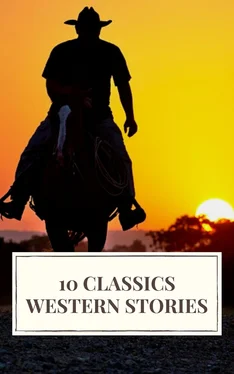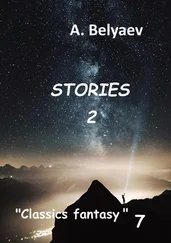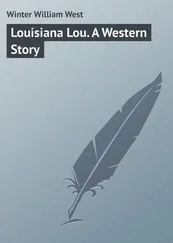“‘It is well,’ I said, ‘I will go alone to the desert. None but the wild beasts of the wilderness will be with me. The seekers of blood will follow on my trail; they may come on me while I am asleep and slay me, but you will be safe. I will go alone.’
“I turned to go. She sprang after me. ‘No,’ she cried, ‘you shall not go alone. Wherever you go I will go: you shall never part from me.’
“While we were talking, one who had seen me slay the chief and had roused the camp, came with others. We heard their steps approaching the door, and knew that death came with them. We escaped at the back of the lodge, but they saw us and their arrows flew. She fell, and I caught her in my arms and fled into the wood. When we were safe I looked at her I carried, and she was dead. An arrow had pierced her heart. I buried her that night beneath a heap of stones, and fled to the Cayuses. That is my story.”
“What will you do now?” asked Cecil, deeply touched.
“I shall live a man’s life. I shall hunt and go on the war-trail, and say strong words in the council. And when my life is ended, when the sunset and the night come to me and I go forth into the darkness, I know I shall find her I love waiting for me beside the death-trail that leads to the spirit-land.”
The tears came into Cecil’s eyes.
“I too have known sorrow,” he said, “and like you I am a wanderer from my own people. We are going together into an unknown land, knowing not what may befall us. Let us be friends.”
And he held out his hand. The Indian took it,—awkwardly, as an Indian always takes the hand of a white man, but warmly, heartily.
“We are brothers,” he said simply. And as Cecil rode on with the wild troop into the unknown world before him, he felt that there was one beside him who would be faithful, no matter what befell.
The long day wore on; the sun rose to the zenith and sunk, and still the Indians pushed forward. It was a long, forced march, and Cecil was terribly fatigued when at last one of the Indians told him that they were near a big river where they would camp for the night.
“One sun more,” said the Indian, pointing to the sun now sinking in the west, “and you will see the Bridge of the Gods.”
The news re-animated Cecil, and he hurried on. A shout rose from the Indians in advance. He saw the head of the long train of horses and riders pause and look downward and the Indians at the rear gallop forward. Cecil and his friend followed and joined them.
“The river! the river!” cried the Indians, as they rode up. The scene below was one of gloomy but magnificent beauty. Beneath them opened an immense canyon, stupendous even in that land of canyons,—the great canyon of the Columbia. The walls were brown, destitute of verdure, sinking downward from their feet in yawning precipices or steep slopes. At the bottom, more than a thousand feet below, wound a wide blue river, the gathered waters of half a continent. Beneath them, the river plunged over a long low precipice with a roar that filled the canyon for miles. Farther on, the flat banks encroached upon the stream till it seemed narrowed to a silver thread among the jutting rocks. Still farther, it widened again, swept grandly around a bend in the distance, and passed from sight.
“ Tuum, tuum ,” said the Indians to Cecil, in tones that imitated the roar of the cataract. It was the “Tum” of Lewis and Clark, the “Tumwater” of more recent times; and the place below, where the compressed river wound like a silver thread among the flat black rocks, was the far-famed Dalles of the Columbia. It was superb, and yet there was something profoundly lonely and desolate about it,—the majestic river flowing on forever among barren rocks and crags, shut in by mountain and desert, wrapped in an awful solitude where from age to age scarce a sound was heard save the cry of wild beasts or wilder men.
“It is the very river of death and of desolation,” thought Cecil. “It looks lonely, forsaken, as if no eye had beheld it from the day of creation until now.”
Looking again at the falls, he saw, what he had not before noticed, a large camp of Indians on the side nearest them. Glancing across the river, he descried on a knoll on the opposite bank—what? Houses! He could not believe his eyes; could it be possible? Yes, they certainly were long, low houses, roofed as the white man roofs his. A sudden wild hope thrilled him; his brain grew dizzy. He turned to one of the Indians.
“Who built those houses?” he exclaimed; “white men like me?”
The other shook his head.
“No, Indians.”
Cecil’s heart died within him. “After all,” he murmured, “it was absurd to expect to find a settlement of white men here. How could I think that any but Indians had built those houses?”
Still, as they descended the steep zigzag pathway leading down to the river, he could not help gazing again and again at the buildings that so reminded him of home.
It was Wishram, the ancient village of the falls, whose brave and insolent inhabitants, more than a century later, were the dread of the early explorers and fur traders of the Columbia. It was built at the last and highest fishery on the Columbia, for the salmon could not at that time ascend the river above the falls. All the wandering tribes of the Upper Columbia came there to fish or to buy salmon of the Wishram fishers. There too the Indians of the Lower Columbia and the Willamette met them, and bartered the hiagua shells, the dried berries, and wappatto of their country for the bear claws and buffalo robes of the interior. It was a rendezvous where buying, selling, gambling, dancing, feasting took the place of war and the chase; though the ever burning enmities of the tribes sometimes flamed into deadly feuds and the fair-ground not infrequently became a field of battle.
The houses of Wishram were built of logs, the walls low, the lower half being below the surface of the ground, so that they were virtually half cellar. At a distance, the log walls and arched roofs gave them very much the appearance of a frontier town of the whites.
As they descended to the river-side, Cecil looked again and again at the village, so different from the skin or bark lodges of the Rocky Mountain tribes he had been with so long. But the broad and sweeping river flowed between, and his gaze told him little more than his first glance had done.
They were now approaching the camp. Some of the younger braves at the head of the Cayuse train dashed toward it, yelling and whooping in the wildest manner. Through the encampment rang an answering shout.
“The Cayuses! the Cayuses! and the white medicine-man!”
The news spread like wildfire, and men came running from all directions to greet the latest arrivals. It was a scene of abject squalor that met Cecil’s eyes as he rode with the others into the camp. Never had he seen among the Indian races aught so degraded as those Columbia River tribes.
The air was putrid with decaying fish; the very skins and mats that covered the lodge-poles were black with rancid salmon and filth. Many of the men were nude; most of the women wore only a short garment of skin or woven cedar bark about the waist, falling scarcely to the knees. The heads of many had been artificially flattened; their faces were brutal; their teeth worn to the gums with eating sanded salmon; and here and there bleared and unsightly eyes showed the terrible prevalence of ophthalmia. Salmon were drying in the sun on platforms raised above the reach of dogs. Half-starved horses whose raw and bleeding mouths showed the effect of the hair-rope bridles, and whose projecting ribs showed their principal nutriment to be sage-brush and whip-lash, were picketed among the lodges. Cayote-like dogs and unclad children, shrill and impish, ran riot, fighting together for half-dried, half-decayed pieces of salmon. Prevailing over everything was the stench which is unique and unparalleled among the stenches of the earth,—the stench of an Indian camp at a Columbia fishery. [6]
Читать дальше












